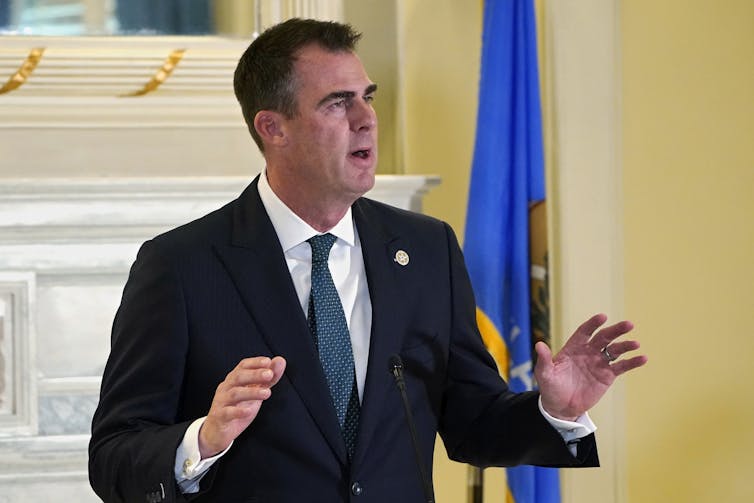
A tsunami of intolerance has engulfed the sporting world. Wave after wave of prejudice continues to make equitable sports participation difficult, and the most recent news heaves trans athletes of all ages overboard into a swirling current of exclusion and stigmatization.
The International Swimming Federation recently implemented measures so absurd — an athlete must fully transition by age 12 — that trans athletes are now functionally banned as few jurisdictions offer such therapies until after puberty.
But it isn’t just swimming, the International Rugby League recently barred trans players while it reviews its own policies.
Some of the most shocking and exclusionary measures, however, have been concocted more locally in the United States, where children are being denied the opportunity to participate in sport on the basis of their gender identities and some state legislatures are even contemplating prohibiting access to trans-specific medical care.
Excluding children for political gain
In a recent poll from the Washington Post and the University of Maryland, a majority of Americans opposed the inclusion of trans athletes in girls’ and women’s sports at the high school (55 per cent), college (58 per cent) and professional (58 per cent) levels.
When it came to youth sport, the results shifted somewhat. Forty-nine per cent of those polled opposed the inclusion of trans athletes in youth sport, with 33 per cent in favour of inclusion and 17 per cent expressing no opinion.
Republican lawmakers, however, are excluding trans youth from sport at a shocking rate, with state after state passing legislation to limit their access to sport.

Over two dozen states have banned transgender youth from playing sports because of their gender identity since 2021. On March 30, Oklahoma Governor Kevin Stitt signed the “Save Women’s Sport Act” into law, prompting a wave of sports-related transphobic legislation across America.
The language of Oklahoma’s new act unveils the moral panic that drove the development of such legislation:
“It being immediately necessary for the preservation of the public peace, health or safety, an emergency is hereby declared to exist, by reason whereof this act shall take effect and be in full force from and after its passage and approval.”
Imagine hearing that excluding you or your child from sport is an “emergency” for the state. That recognizing a trans person’s right to inclusion amounts to a “safety” or “health” threat.
Ohio’s version of the ban was even more aggressive. Any high school athlete even suspected of being transgender could be subjected to a genital examination.
Commenting on the law to the Ohio Capital Journal, Democratic representative and physician Beth Liston highlighted the misplaced panic stoked by Republicans saying:
“There are not scores of girls’ dreams being crushed, there is one child trying to play on their high school sports team.… This is a made-up controversy and this amendment is state-sanctioned bullying.”
Another way
State lawmakers — like those in Oklahoma and Ohio — who advocate for laws similar to the “Save Women’s Sport Act” are to some degree supported by the sport’s outdated, sex-based binary fields of competition. But sex is not binary. It exists on a continuum.
The sort of binary employed by American lawmakers, while claiming to protect women, is reinforcing outdated, socially constructed sex categories that champion some athletes to the detriment of others. And the situation for trans women is particularly daunting.
As sport scholars C.B. Lucas-Carr and Vikki Crane explain in The Sport Psychologist, “Strict adherence to this binary has resulted in the erasure and stigmatization of transgender individuals.”

Recognizing the downfall of the binary model for sport, Canadian sports leaders have gone a different direction. In 2012, the Canadian Centre for Ethics in Sport (CCES) brought together a panel of experts including representation from the True Sport Secretariat, Canadian Women and Sport, AthletesCAN to discuss the inclusion of transgender athletes in sport.
Following the event, the CCES published a report, Sport in Transition: Making Sport in Canada More Responsible, embracing gender self-identification, allowing an athlete to compete in the category that best reflects their identity, protecting their “fundamental rights of choice, self determination and privacy for all participants.”
While some Canadians were certainly skeptical that such inclusion could work, sports scholar Sarah Teetzel observed, the Canadian sport system has not been dominated by a wave of so-called “imposters” entering women’s sport.
The critics were wrong. And the lawmakers behind the “Save Women’s Sports Acts” are wrong.
With mass instances of sexual and physical assault, lack of access to resources, pay inequities, under-representation of women in leadership positions, inequitable media coverage and so on, we can’t pretend that girls’ and women’s sports are perfect. But none of these laws that “protect women’s sport” actually address the widespread issues in women’s sport.
Lawmakers and governing bodies aren’t actively ensuring or promoting equitable access to facilities and other resources; equal pay for workers in girls and women’s sport; or even strengthening protections against sexual and physical abuse from coaches, teachers and administrators. Instead, they’ve chosen to target trans women.
The authors do not work for, consult, own shares in or receive funding from any company or organisation that would benefit from this article, and have disclosed no relevant affiliations beyond their academic appointment.
This article was originally published on The Conversation. Read the original article.







